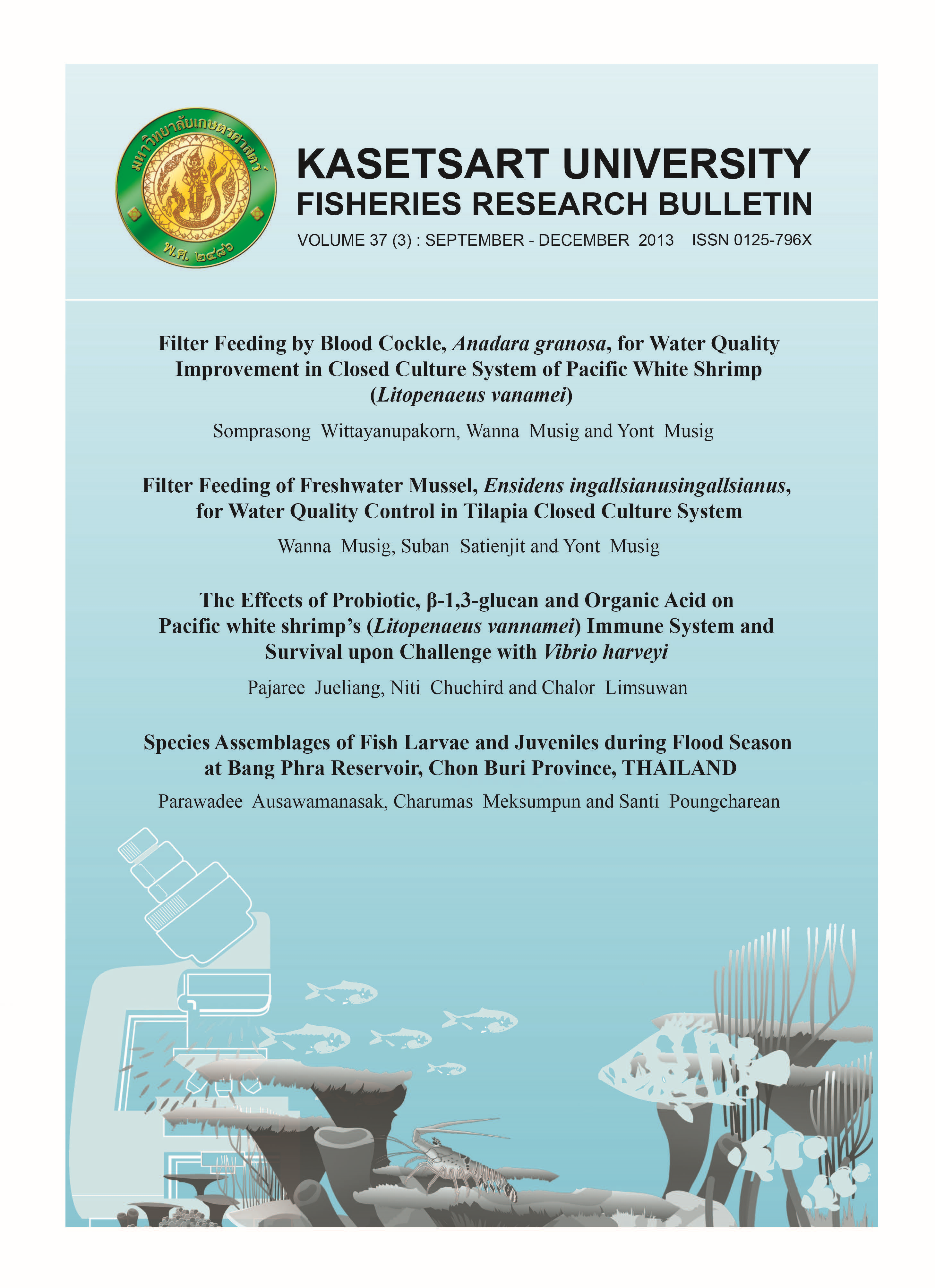The Effects of Probiotic, β-1,3-glucan and Organic Acid on Pacific white shrimp’s (Litopenaeus vannamei) Immune System and Survival upon Challenge with Vibrio harveyi
Main Article Content
Abstract
A study of the effects of β-1,3-glucan, probiotic and organic acid on the growth, non-specific immune characteristics and survival of Pacific white shrimp (Litopenaeus vannamei) was conducted under laboratory conditions. Pacific white shrimp (average 6-7 g) was subjected to four treatments (six replicates/treatment). Each replicate consisted of 30 shrimp in 500-liter tanks. Shrimp were fed four times daily at 3% of body weight for 60 days with pelleted feed mixed with β-1,3-glucan probiotic at the rate of 2g:1kg, and organic acid at 1.2g:1kg of feed. Commercial pelleted feed without any supplement was used as the control diet. After 60 days of dietary administration, shrimp fed with β-1,3-glucan had the highest average body weight (20.93± 4.40 g) which was not significantly different (p>0.05) from the other groups. Survival rates of shrimp in the 3 treatments. The glucan group had significantly higher (p<0.05) THC, percentage phagocytosis, bacteriacidal activity, phenoloxidase activity, superoxide dismutase activity than the other groups (probiotic, organic acid and control). However, shrimp fed with β-1,3-glucan and probiotic showed significantly higher survival rate after challenge with Vibrio harveyi than the organic acid and control groups. These results suggest that β-1,3-glucan and probiotic could be recommended to be used as a diet supplement to strengthen immunity of shrimp and control Vibriosis in shrimp culture.


